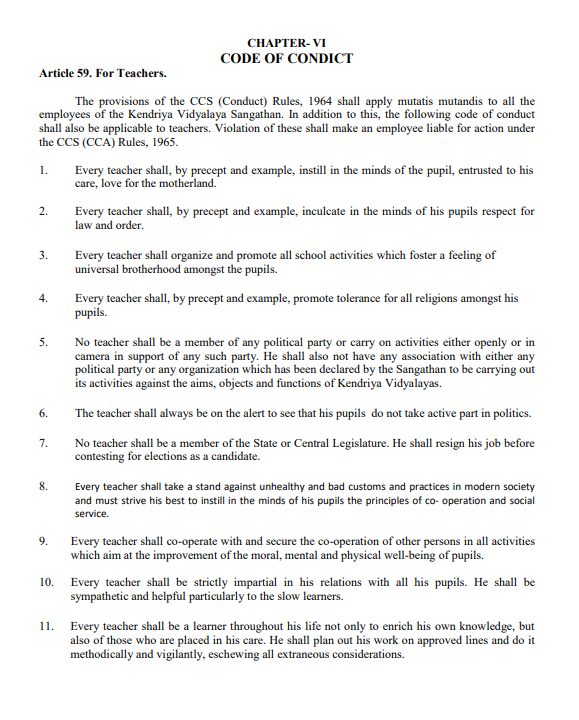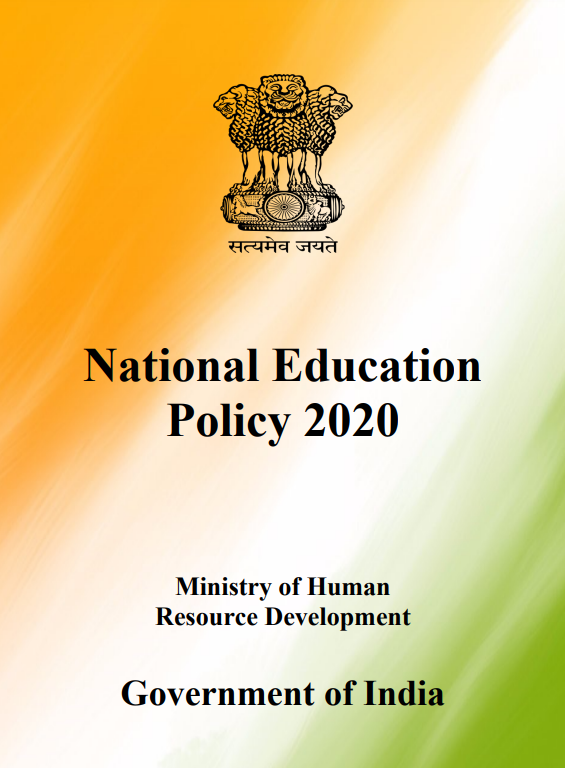
CODE OF CONDUCT Article 59 for Teachers
Introduction to the Code of Conduct for Educators
Teaching is more than just a profession—it’s a commitment to shaping minds and building futures. For this reason, teachers are held to high ethical and professional standards. The Code of Conduct for teachers serves as a guiding document that ensures educators maintain integrity, fairness, and respect within the classroom and school environment.
What is Article 59?
Origin and Legal Framework
Article 59 is a specific clause within the broader Code of Conduct designed for teachers in many educational systems. It outlines clear behavioral expectations, ensuring teachers maintain professionalism, avoid misconduct, and foster a supportive educational environment.
Importance of Article 59 in Educational Institutions
Why does Article 59 matter so much? Because it sets the tone. It provides the foundation for professional behavior, keeping the school environment safe, structured, and focused on learning.
Core Responsibilities of Teachers under Article 59
Upholding Integrity in Teaching
Teachers are expected to be role models. This includes being honest, fair, and objective in all classroom dealings—whether it’s grading, offering feedback, or managing classroom behavior.
Respect and Equality for All Students
Every student deserves equal treatment. Article 59 emphasizes zero tolerance for discrimination based on race, gender, religion, or socioeconomic status.
Ethical Standards and Professionalism
Maintaining Confidentiality
Sensitive information about students should be handled discreetly. Teachers are obligated to protect students’ privacy—both in and out of school.
Avoiding Conflict of Interest
Teachers must remain neutral, especially when personal relationships or external influences threaten professional judgment.
Classroom Conduct Guidelines
Ensuring a Safe Learning Environment
Safety isn’t just physical—it’s emotional too. Teachers should encourage respectful dialogue, free from bullying or judgment.
Discipline and Fairness in Student Treatment
Discipline must be consistent and fair. No student should feel targeted or unfairly treated.
Teacher-Student Boundaries
Building Healthy, Respectful Relationships
A good teacher-student relationship is rooted in mutual respect, not favoritism or personal attachment.
Avoiding Inappropriate Behavior
Any form of inappropriate contact or language is strictly prohibited under Article 59 and can lead to serious disciplinary actions.
Use of Technology and Social Media
Responsible Digital Communication
In this digital age, online interaction is common. Teachers must maintain professionalism, even when communicating through school platforms or emails.
Protecting Student Privacy Online
Photos, names, or any identifying info of students should never be shared without permission.
Disciplinary Measures and Violations
Consequences of Breaching Article 59
Breaching Article 59 could lead to anything from warnings to job termination, depending on the severity of the violation.

Reporting and Investigation Process
Suspected violations are taken seriously. Investigations are usually conducted confidentially, with both sides given a chance to be heard.
Training and Awareness for Teachers
Professional Development Programs
Schools should provide regular training sessions to keep teachers informed about updates in the code.
Regular Updates on Policy Changes
As society evolves, so do the rules. Article 59 may change over time, and it’s vital that teachers stay updated.
Role of School Administration
Enforcing the Code of Conduct
Administrators play a key role in making sure everyone follows the rules—teachers included.
Supporting Teachers in Compliance
Support goes a long way. Whether it’s resources, counseling, or guidance—administrators should help teachers stay on the right track.
Impact of Article 59 on School Culture
Promoting Trust and Respect
When everyone plays by the rules, trust grows. Article 59 helps create an atmosphere of mutual respect among students, teachers, and parents.
Enhancing Student Outcomes
A safe and respectful classroom = better learning. It’s that simple.
Case Studies and Real-Life Examples
Positive Impact Stories
Many teachers have shared how Article 59 helped them handle tough situations with confidence and clarity.
Lessons from Violations
On the flip side, we’ve seen how ignoring the code can lead to damaged reputations and lost careers.
Challenges in Implementing Article 59
Resistance and Misunderstandings
Some teachers may feel the rules are too strict or vague. Misunderstandings happen, especially when the language isn’t clear.
Solutions for Effective Enforcement
Workshops, mentorship programs, and open communication channels help clear up confusion and ease resistance.
Parental Involvement and Expectations
Communication Between Teachers and Parents
Parents trust teachers with their children. Regular, honest communication builds a partnership that benefits everyone.
Building a Collaborative Environment
When parents and teachers work together under the guidelines of Article 59, students thrive.
Future of Teacher Ethics and Article 59
With the rapid pace of change in education, the ethical responsibilities of teachers will continue to grow. Article 59 may evolve, but its core purpose—promoting ethical, respectful, and professional conduct—will always remain.
Conclusion
Article 59 isn’t just a rule—it’s a reflection of the values we want to see in our schools. It’s about fairness, professionalism, and creating a nurturing space for students to learn and grow. Teachers who understand and follow Article 59 not only protect their careers—they also make a powerful difference in the lives of their students.
FAQs
1. What does Article 59 mean for new teachers?
It means starting your teaching journey with a clear understanding of professional ethics and responsibilities.
2. Can a teacher be dismissed for violating Article 59?
Yes, depending on the severity of the violation, dismissal is possible.
3. How often is the Code of Conduct updated?
This varies by institution, but updates usually occur every few years or as needed.
4. Are students or parents involved in enforcing Article 59?
They may report concerns, but enforcement is typically handled by school administration or a disciplinary board.
5. How can teachers learn more about Article 59?
Through school-provided training, workshops, policy manuals, or professional development courses.
Please don’t forget to leave a review.

For more information and updates please follow the page and don’t forget to leave your comment.
